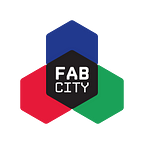Bali Fab Fest Symposium, a Fab City Full Stack Curated Event
At the intersection of science, technology, art, education and communities is the emergence of creativity and new ways of innovation and living. Biotechnology, oceanography, artificial intelligence, architecture, and the circular economy are some of the advanced technologies communities are exploring for strengthening local production.
The Bali Fab Fest symposium was a one-day event held at the Bedawang Nala at the Jimbaran Hub on 21st October, 2022. It was the culmination of the inspiring and vibrant Bali Fab Fest and saw 32 speakers from the US, Europe, Asia and Africa present their groundbreaking research and meaningful projects. We saw how these speakers were charting out blueprints for sustainable innovation and alternative methods of learning and living. In these talks, speakers addressed important questions across four thematic tracks: How will science and technology reshape reality? Are we learning the right skills to change everything? How are communities shaping action in territories? And how can systemic change be scaled regionally and globally?
Science and Technology
Technological advancements should not occur in a top-down delivery approach but should be participatory and integrate local communities, materials, culture and methods. In the shift from the linear to circular economy, the use of biomaterials, and the reuse and re-engineering of waste into valuable materials such as bioplastics is necessary to reduce global pollution and CO2 emissions. Open tools and technology can ensure inclusive and distributed application and development. During the symposium we heard from innovators from Circular Engine and Silk Lab who are providing the resources to support circular ambitions within communities and cities. Similarly, open source technologies like the foldscope and the OpenRAMAN projects are democratizing measurement tools for disease diagnostics globally.
Education and Innovation
The challenges and unpredictability of the current world demands the evolution of education to new ways of learning that are systemic, inclusive, sustainable and scalable. In this age, the practices that are driving innovation in education include ancient and local materials augmented by advanced technologies, problem or project-based learning in creative and inclusive spaces, sustainable project designs for public strategy and adaptation of ‘Do it Yourself’ and open source technologies for community based projects. These practices are multidisciplinary and can ultimately be relevant for enabling startups and social enterprises and providing economic opportunities to communities. During the event, community-based projects Makers Asylum, HONF Foundation, Bamboo U, Nuanu and Thomas Duggan Studio showed how they are pushing for global change by harnessing these approaches as part of novel educational programs. For example, Plastic Safari, by Makers Asylum, takes waste education to young people on the road, offering a hands-on and mobile approach to understanding plastic impact and possible reuse solutions.
Networks, Communities and Territorial Strategies
Communities are activated by collaborations, regional or global, community engagements, provision of training opportunities for communities to learn new open source technologies for prototyping, and incentivizing communities that participate in shared projects. Jimbaran Hijau is fostering community building by creating an enabling environment for bringing different communities together to promote creativity and innovation. Also, the Djoko Kuswanto project is impacting the health of patients in communities and across countries by providing assistive technologies for people living with forms of disabilities with the aid of digital fabrication. Coming to the realization that plastic is not entirely the problem, the Plastic Exchange initiative is driving the shift from the collect-transport-dump model of handling waste to the separate-transform-prosper model with the support of local communities. These projects are empowering communities to experience better standards of life.
Bioregions and Global Knowledge
The existence of communities causing global change are interdisciplinary, multi-stakeholder and inclusive, and transcends geographical boundaries. Improving human-human and human-nature interactions are approaches for rethinking energy use and for adopting circular economy approaches that have the potential to reduce global emissions, control the use of natural resources and to provide economic opportunities especially for local communities. Although implementation and funding of community reviewed projects are key, ensuring dissemination of learnings to rural communities must be prioritized for scalable solutions. Community projects like Lumare and Just One Giant Lab (JOGL) are engaging communities across the globe for alternatives of living and collaborating.
Conclusive Thoughts
The symposium was a platform to engage experts bringing different aspects of the Fab City Agenda to life through the layers of the Fab City Full Stack. From bottom layers, the talks from speakers addressed these questions: How will science and technology reshape reality? Are we learning the right skills to change everything? How are communities shaping action in territories? And how can systemic change be scaled regionally and globally? Collaborations, knowledge sharing, incentives and advanced technologies are pivotal for creating new innovations that save the planet. These are promoting local community based production, and increasing economic opportunities for local communities.
Experience the talks from the event to see the Fab Island and the BFF Community Sustainability Challenges winners, and Bhutan’s pledge to the network.
